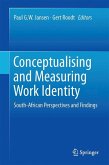This book critically examines current workplace diversity management practices and explores a nuanced framework for undertaking, supporting, and implementing policies that equally favor all people. It presents critical perspectives that not only elevate respect for differences but also provide insights into the nature and dynamics of differences in view of an inclusive and truly participative organizational environment.
The book first presents a brief overview of the connotations associated with workplace diversity and its effective management. Next, it focuses on the organizational appropriation of differences through the formation and mediation of various diversity discourses. It demonstrates the particular articulations of these discourses with inequality and oppressive structures that perpetuate structural disadvantage due to existing power disparity between dominant and unprivileged group members. The book then goes on to underscore the need of constructing relational and context-sensitive diversity management frameworks.
Overall, the book outlines that current business cases for diversity focus solely on instrumental goals and tangible outcomes and, as a result, fail to fully capture the complexity as well as the particularity of the diversity phenomenon. The book underlines the necessity for a more inclusive paradigm, implying a progressive problem-shift in the dominant diversity research agenda from a market-driven business-oriented diversity management to one highly valuing, affirming, and respecting otherness.
The book first presents a brief overview of the connotations associated with workplace diversity and its effective management. Next, it focuses on the organizational appropriation of differences through the formation and mediation of various diversity discourses. It demonstrates the particular articulations of these discourses with inequality and oppressive structures that perpetuate structural disadvantage due to existing power disparity between dominant and unprivileged group members. The book then goes on to underscore the need of constructing relational and context-sensitive diversity management frameworks.
Overall, the book outlines that current business cases for diversity focus solely on instrumental goals and tangible outcomes and, as a result, fail to fully capture the complexity as well as the particularity of the diversity phenomenon. The book underlines the necessity for a more inclusive paradigm, implying a progressive problem-shift in the dominant diversity research agenda from a market-driven business-oriented diversity management to one highly valuing, affirming, and respecting otherness.








